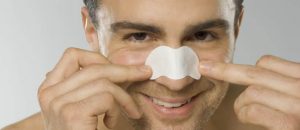Snoring was once considered a mild, insignificant problem that doesn’t require serious medical consideration. However, we now know that sleep apnea is a serious condition that greatly affects not just your quality of life but also your overall health. Snoring and sleep apnea have been studied extensively and several solutions have been found. These snoring aids are all different in their basic principles. They work in different ways and give different results. So, let’s take a look at what snoring solutions you can find on the market right now.
Mouthpieces

The first snoring aid most people resort to in order to improve their quality of their sleep is the mouthpiece. There are different kinds of snoring mouthpieces and obviously, their cost varies. However, they are definitely on the cheaper side of the snoring aid spectrum.
Mouthpieces are also among the most proven snoring aids around. Some of them have even been clinically studied. If used correctly, a high-quality mouthpiece brings almost instant relief.
There are two basic kinds of snoring mouthpieces – the Jaw Retaining or Mandibular Advancement Device (MAD) and the Tongue Retaining Device (TRD). In order to establish which kind would be best for your needs, you should consult a physician or a dentist before purchasing one.
Many mouthpiece devices are adjustable. You can manage the extent at which they modify the way you hold your jaw or tongue as you sleep. Many (especially MADs) can also be molded to fit your mouth and jawline better. Molding and fitting are usually very simple and done using the boil and bite technique.
Despite being probably the most efficient snoring aids, mouthpieces definitely have their downsides as well. For example, MAD devices often cause jaw and teeth pain, in some cases even a slight misalignment of the teeth and your bite. TRD devices may cause drooling, sensitive or sore mouth, especially at the tip, and dry mouth.
Chin Straps
Chin straps work similarly to jaw retaining mouthpieces. They too hold your jaw in place and prevent snoring. Straps are among the oldest snoring aids around and some people swear by them. Still, there are some issues that you should keep in mind when it comes to chin straps. For instance, a chin strap will keep your mouth completely closed, which may be a problem if you have a stuffy or blocked nose. Also, the strap may slip during sleep and it may irritate your skin if it’s made from cheaper materials.
Chin straps are generally very comfortable and easy to use. If you don’t mind looking a bit silly while you sleep or if you feel that the benefits are far greater than this slight disadvantage, then wearing a chin strap is probably a good idea for you. Bear in mind, though, that chin straps are only a quick and simple remedy that provides immediate relief from snoring, like most other devices listed here, and that they will not cure snoring for good. In order to avoid skin irritation, pick a good chin strap made from high-quality, preferably breathable fabrics, and make sure to wash it properly.
Nasal Devices
 Different nasal devices are used to prevent snoring, based on different principles and with a varying efficiency. You can choose between nasal cones that go into your nostrils and nasal strips, which are very common, but unfortunately not always effective. Keep in mind that nasal anti-snoring devices will only work if snoring is caused by a problem related to the nasal cavity, such as a nasal deformation, some kind of blockage or simply a cold or the flu.
Different nasal devices are used to prevent snoring, based on different principles and with a varying efficiency. You can choose between nasal cones that go into your nostrils and nasal strips, which are very common, but unfortunately not always effective. Keep in mind that nasal anti-snoring devices will only work if snoring is caused by a problem related to the nasal cavity, such as a nasal deformation, some kind of blockage or simply a cold or the flu.
There are different types of nasal devices on offer. The most popular are definitely nasal strips. These little strips are placed across the bridge of your nose so that the ends of the strip pull gently at your nostrils, keeping them nice and open and allowing for better airflow. Nasal strips are generally cheap and come in convenient multi-packs. Some brands offer nasal strips in different sizes, colors, and even strengths.
Nasal dilators are also very popular. These tiny plastic or silicone devices go inside your nostrils and dilate (open) them so that the air can flow normally as you breathe in and out. They are somewhat more expensive than nasal strips and need to be changed occasionally.
Nasal tubes, cones or vents also go inside your nose and they also work by opening up your nostrils. Most of them are made of BPA-free plastic materials or medical-grade silicone and there are some very comfortable and discreet ones available.
Pillows
Anti-snoring pillows were all the rage a few decades ago and then they disappeared from the market almost completely. Today, they are making a comeback thanks to technological and scientific advancements and new understandings of how and why people snore. An anti-snoring pillow works by keeping your head in a position that allows your airways to stay open as much as possible. However, this works better in theory than it does in practice. There is no way a pillow will keep your head and neck in the right position if you are a restless sleeper. Second, many people find them very uncomfortable. Cheap or mediocre anti-snoring pillows simply do not work, but the expensive, high-quality ones might be worth a shot.
Some anti-snoring pillows also work for back and neck pain, so there’s another advantage. If you are a fussy sleeper, there are sleeping wedges that keep the entire upper portion of your body propped up.
CPAP Therapy
 CPAP stands for Continuous Positive Airway Pressure and it’s a rather serious, complicated device that is designed to help people struggling with obstructive sleep apnea. It’s one of the most efficient snoring solutions around. However, many people shy away from it since it looks weird and uncomfortable and just seems like too much effort for such a small problem. However, people who have tried sleeping with a CPAP device will tell you that once you go CPAP you never go back. They wake up in the morning feeling completely refreshed, rested and full of energy because they are finally able to breathe normally throughout the night and get all the vital oxygen our body and brain need.
CPAP stands for Continuous Positive Airway Pressure and it’s a rather serious, complicated device that is designed to help people struggling with obstructive sleep apnea. It’s one of the most efficient snoring solutions around. However, many people shy away from it since it looks weird and uncomfortable and just seems like too much effort for such a small problem. However, people who have tried sleeping with a CPAP device will tell you that once you go CPAP you never go back. They wake up in the morning feeling completely refreshed, rested and full of energy because they are finally able to breathe normally throughout the night and get all the vital oxygen our body and brain need.
You can get a CPAP with a prescription, once you are definitely diagnosed with sleep apnea by a qualified physician or a sleep lab.
Pills and Sprays
There are hundreds of over-the-counter snoring solutions that promise to put an end to snoring but, unfortunately, not many of them actually work. People always prefer popping a pill or spraying something in their nose once or twice instead of actually addressing the issue in a serious and dedicated manner. Some of these solutions, however, may be useful if your snoring stems from an allergy, a cold or the flu.
In addition to pills and sprays containing actual medication, whether it’s over-the-counter or prescription-strength, there are also products that are all-natural, based mainly on essential oils and vitamins.
Alternative Options
If you don’t feel like using any of the standard sleeping aids, you should know that there are some alternative options as well. For example, Dr. Buteyko’s method uses breathing exercises to train your brain into using only your nose for breathing and cure snoring, sleep apnea and even asthma. Some people claim it works, some say it’s rubbish. It definitely doesn’t help those whose snoring stems from causes unrelated to nose breathing. Another quite popular and very fun method to quit snoring is playing the didgeridoo. It sounds strange but practicing playing this instrument conditions your throat muscles and makes them stronger, leading to better, more regular night-time breathing. Singing therapy and various mouth and throat exercises work on a similar principle. Other alternative methods include herbal therapy, acupuncture and acupressure, yoga, nasal irrigations, and so on.
Conclusion
With so many different types of snoring aids, devices, and therapies out there, the battle against snoring is looking more optimistic than ever. Do your research, weigh the pros and cons based on your personal needs, possibilities, and resources, try out several options and find out which one works the best for you. Whatever you do, don’t let the snoring win!